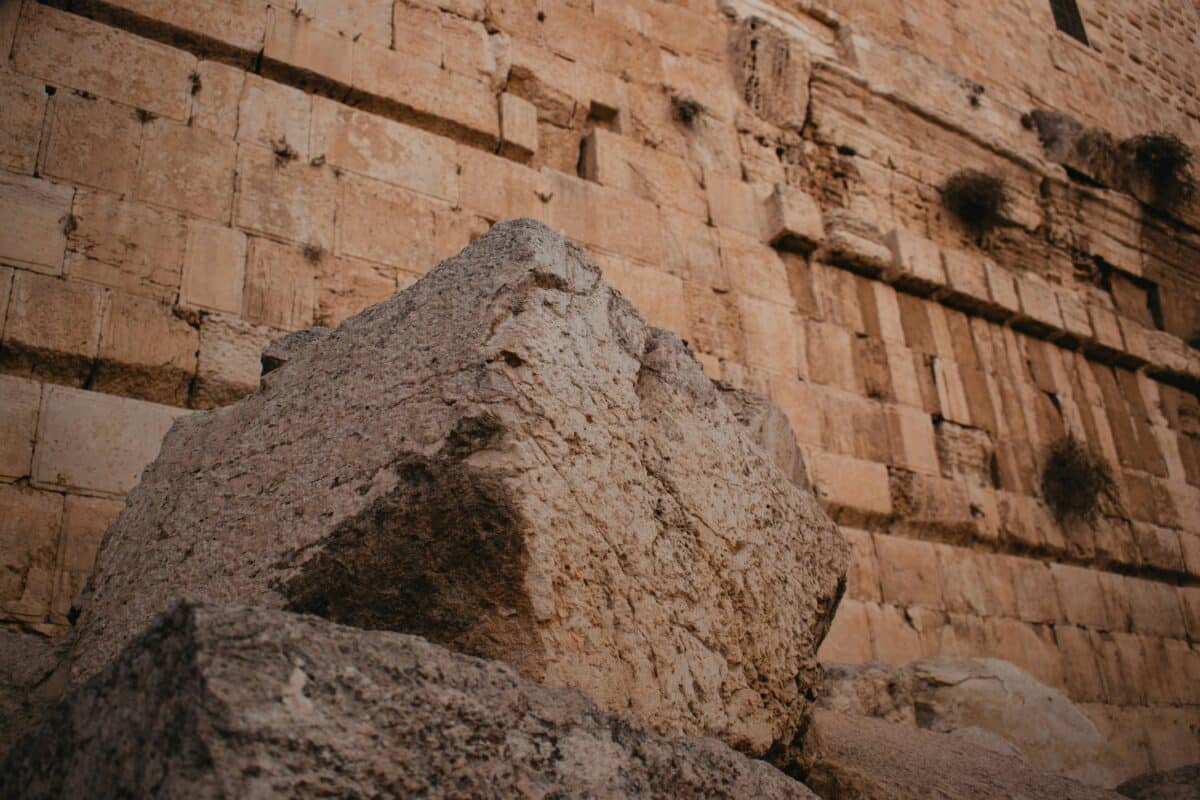Article
10 Lessons from Nehemiah’s Wall
Nehemiah 3-4 isn’t just about a wall. It’s a portrait of how God mobilizes His people for His mission.

When church planters and their teams embark on the adventure of starting something new, they’re often drawn to the big, explosive moments in Scripture—the boldness of Paul’s missionary journeys, the clarity of Jesus’ Great Commission, and the fire of Pentecost. These texts inspire movement, courage, and action.
But very few turn to Nehemiah 3-4.
Let’s be honest: most of us have skimmed past this passage—or skipped it entirely. It reads like an ancient spreadsheet: a list of names, gate repairs, who built what, who worked next to whom.
But what if this is exactly the kind of chapter church planters need?
In Luke 24:27, the risen Jesus walks alongside two disheartened disciples and shows them how all Scripture—from Genesis to Malachi—points to Him. That includes the stories, the prophecies, and even the lists.
Nehemiah 3-4 isn’t just about a wall. It’s a portrait of how God mobilizes His people for His mission.
And for those who are laying the foundations of new gospel communities, it’s surprisingly relevant—maybe even essential.
1. The Church’s Leadership
The first names mentioned are the priests (Nehemiah 3:1). It’s no accident. In God’s economy, leadership sets the tone. It’s not just about strategy or authority—it’s about example.
But notice who’s not mentioned: Nehemiah. Though he organized the entire operation, he stays offstage in this chapter. He empowers others. He elevates the team.
That’s the kind of leadership the church needs—servant leadership. Leadership that builds platforms for others, not just for itself.
This points us to Jesus, the true and better Nehemiah. He’s not just the master planner—He’s the Cornerstone. He’s the builder of the church. He said, “I will build my church” (Matthew 16:18), and He’s doing it through ordinary leaders who are willing to serve from the center of the mission, not the top of a pedestal.
Leaders don’t work above the people—they work alongside them. With sleeves rolled up. With hands on the wall.
2. The Church’s Mission
Nehemiah 3 paints a compelling picture: dozens of teams repairing and rebuilding section after section. Each group had a job. Each part mattered. The entire city was being strengthened.
That’s a picture of the church on mission. But what’s our “wall”?
The Great Commission (Matthew 28:18-20). Jesus has called us to go and make disciples of all nations, baptizing them into the family of God, teaching them to obey all that He commanded, and planting churches marked by gospel truth and obedience.
That’s the wall we’re building. So, we must regularly pause and ask:
- Are we still on mission?
- Are we still making disciples?
- Or have we gotten sidetracked by side projects, internal drama, or endless logistics?
Programs are not the wall. Events are not the wall. The mission is the wall.
3. The Church’s Diversity
The workers in Nehemiah 3 weren’t all builders. The chapter includes priests and rulers, goldsmiths and perfumers, men and women, locals and outsiders, city-dwellers and farmers. Some were highly skilled. Others were simply available.
It’s beautiful—and messy.
The church was never meant to be a demographic echo chamber. It’s a spiritual family, made up of people from every background and walk of life, united by the gospel and filled with the Spirit.
Church planters often feel pressure to “target” a specific group or demographic. But Nehemiah’s wall reminds us: God’s kingdom is broader than our marketing strategy.
Let the gospel break barriers. Let the church reflect the city. Let the wall be built by all kinds of hands.
4. The Church’s Focus
Many of the builders repaired sections of the wall that didn’t even directly benefit their homes or businesses. Why? Because the mission mattered more than their convenience.
They understood something bigger was happening. They weren’t building their wall—they were building God’s city. Church planting demands the same mindset. It requires a death to self and a bigger “yes” to the kingdom. Yes, it’s inconvenient. Yes, it’s hard. But it’s worth it.
5. The Church’s Need
In verse 5, we get this sobering detail: the nobles of Tekoa “would not stoop to serve their Lord.”
There will always be some who refuse to participate. Some who feel the work is beneath them. Some who stay spectators while others carry the weight. And it leaves gaps. But here’s the grace: God still builds, even when some refuse to stoop. And their absence reminds us that the church is always in need of humility, of healing, of formation.
Church planting isn’t just about building a community. It’s about being formed into one.
6. The Church’s Commitment
Over and over again, the workers keep showing up. They build. Some repair more than one section (v. 27). Some work outside their area of expertise. No one offers excuses. No one waits for ideal conditions.
There’s no entitlement here—just grit.
When God gives the vision, He supplies the grace. He doesn’t need professionals. He needs people with a “mind to work” (4:6). Church planting doesn’t require perfection—it requires persistence.
7. The Church’s Evidence
Some of the names in Nehemiah 3 show up earlier in Scripture (Ezra) as people who had once failed. Yet here they are, building the wall.
God redeems stories.
Church planters may look around their launch team and wonder: Can God really use this group? Can He really use me? Nehemiah 3 shouts, “Yes.” God delights in using broken, flawed, redeemed people to build something beautiful and lasting. The wall was built by grace.
8. The Church’s Enemy
As the work progresses, opposition arises (Nehemiah 4). Sanballat and Tobiah mock the builders: “What are these feeble Jews doing?” (v. 2)
Sound familiar?
Every church plant will face resistance—spiritual, cultural, internal. Whether it comes as criticism, conflict, fatigue, or fear, it will come.
This is not a detour. It’s part of the journey. Because when you give yourself to God’s work, you pick a fight with God’s enemy. But, there’s good news.
9. The Church’s Hope
Nehemiah doesn’t respond to mockery with clever rebuttals. He doesn’t call a meeting or design a new strategy. He prays.
“Hear, O our God, for we are despised” (v. 4).
Prayer is the church planter’s first and best weapon. It’s not an accessory—it’s a lifeline. It’s how we show that we really believe Jesus is Lord of the church. We don’t plant churches in our strength. We plant them in prayer.
10. The Church’s Endurance
“So we built the wall … for the people had a mind to work” (v. 6).
The wall didn’t build itself. It wasn’t built in a weekend. But day by day, brick by brick, the people kept showing up. And the wall began to rise.
Church planting is not glamorous. It’s often slow, gritty, behind-the-scenes work. But Jesus will build His church.
And He will do it through people like you—people who keep showing up with faith and grit.
A Word to Church Planters
As you step into this sacred work—not just of starting a service, but of forming a gospel-saturated, Spirit-filled community—remember:
- You’re not the Nehemiah. Jesus is.
- You don’t need perfect people—just faithful ones.
- Your wall is the Great Commission.
- Your blueprint is God’s Word.
- Your power is the Holy Spirit.
- Your hope is in Christ alone.
Even when it feels like you’re just laying bricks, you’re part of something eternal.
So rise up. Hand out assignments. Pray with boldness. Love with endurance. Preach with joy. Suffer with hope.
Jesus is building His church. And by His grace, He’s letting you be a part of it.




